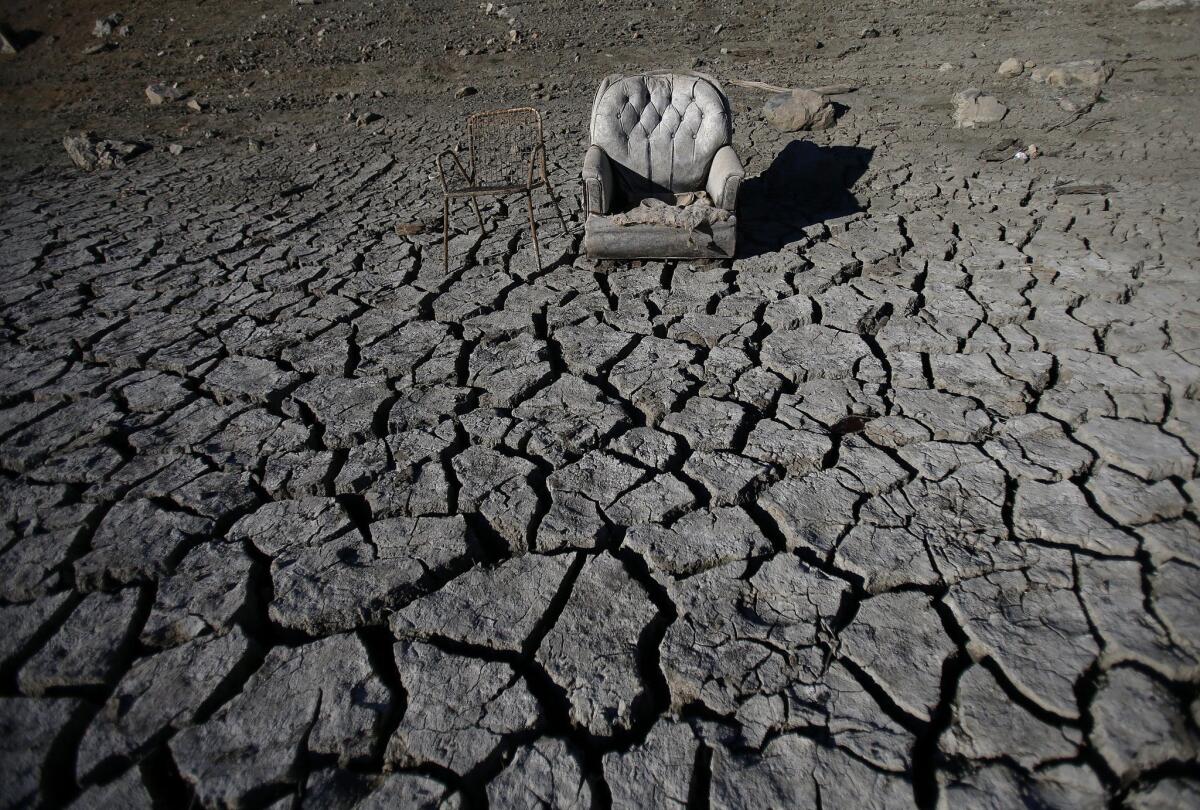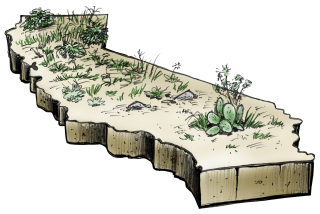California drought prompts first-ever ‘zero water allocation’

Officials Friday said that for the first time ever, the State Water Project that helps supply a majority of Californians may be unable to make any deliveries except to maintain public health and safety.
They also said they were cutting releases from large reservoirs in the northern part of the state to preserve supplies in the face of what could be the worst drought in modern California history.
“It’s about holding back water so we’ve got it tomorrow,” said Chuck Bonham, director of the Department of Fish and Wildlife.
The zero allocation for the State Water Project is the first in the sprawling system’s 54-year history. It will be reassessed monthly and could be adjusted upward if storms drop snow and rain on the parched state in the next three months.
Most of the contractors that get water from the project have other sources, such as storage and groundwater, and state Department of Water Resources Director Mark Cowin stressed that the delivery cut did not mean faucets would run dry.
The Metropolitan Water District of Southern California, the state project’s largest customer, has said it has enough supplies in storage to get the Southland through this year without mandatory rationing.
Cowin said it was necessary to take aggressive action now to ensure water would be available later for people, farms and fish. “This is not a coming crisis. ...This is a current crisis,” he said.
The State Water Resources Control Board announced that it is temporarily dropping requirements for reservoir releases to maintain environmental standards in California’s water hub, the Sacramento-San Joaquin River Delta.
The board is also telling junior rights holders in the Sacramento and San Joaquin river basins that they will have to curtail diversions from rivers and streams. Officials said most of the 5,800 junior diverters, who are primarily agricultural, have access to groundwater or other sources.
In another step, the board is limiting pumping from the delta to exports necessary for human health and safety, an action that in effect eliminates irrigation deliveries from the delta to the San Joaquin Valley.
Cowin called the actions “largely unprecedented but also unavoidable.”
[email protected]
Twitter: @boxall
More to Read
Sign up for Essential California
The most important California stories and recommendations in your inbox every morning.
You may occasionally receive promotional content from the Los Angeles Times.











